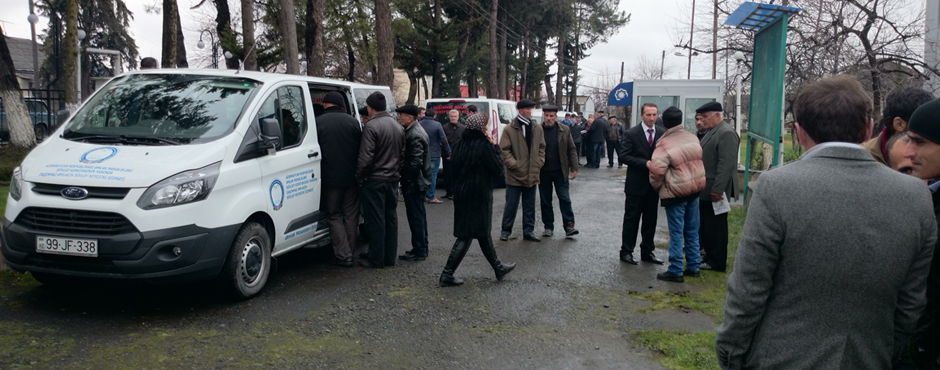By Victoria Stanley, Senior Rural Development and Land Specialist at the World Bank
I recently had the opportunity to see the mobile offices run by the State Service for the Registration of Real Estate (SSRRE) of the Republic of Azerbaijan. These mobile offices provide the same services any citizen can receive in a physical SSRRE office, but they literally come to you.
Property registration is a very important activity in Azerbaijan which has transformed from a planned economy to a market economy over the past decade. For most citizens their property is the largest asset they own, so being able to register that property in a secure real estate registry is very important. However, there are many reasons that can prevent property owners from visiting an office, whether it be distance, old age, or disability. That’s why SSRRE decided to take the office out on the road.
The mobile units include a laptop, printer and other necessary equipment, as well as experienced SSRRE staff to answer questions and help citizens.
In 2014, the first year of operation, the mobile units served more than 14,000 people – providing them with documents, helping with registration and other transactions. In 2015, that number more than doubled to reach over 50,000 people.
And mobile units/offices are increasingly being used in other countries to help serve under-served populations – remote rural settlements, elderly, persons with disabilities, and others. Serbia, for instance, is planning to pilot mobile offices this year, while Indonesia has been providing mobile land services for years under its LARASITA program. They also travel by boat, so the service can reach clients in even the most remote areas of the country!
Likewise, South Africa recently launched a mobile office service for land claims to ensure that the maximum number of potential claimants are reached. The mobile offices travel around the country and are fully equipped to process applications for land claims.
Such ‘mobile’ services have been around for a while, going all the way back to judges on horseback in the 18th and 19th centuries. We, in the World Bank Land team, believe that mobile service delivery remains largely underutilized, and would be interested to hear other perspectives and insights: based on your experience, how do you think we can leverage the potential of mobile services to support our clients better and help them provide services for all? What other regions and sectors could benefit from this approach?

